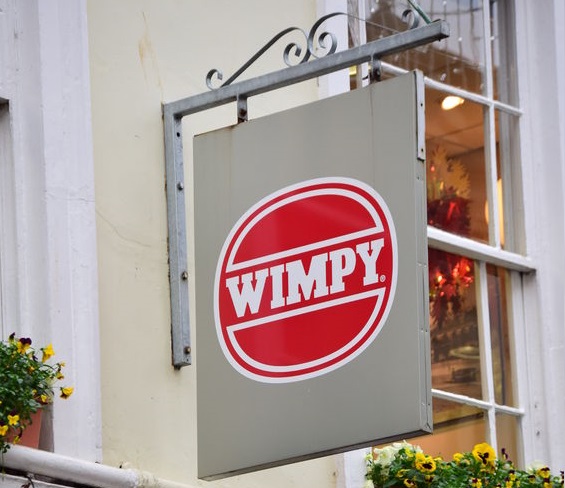
A new cage-free egg petition has hit the web - this time targeting the UK fast food restaurants run by the burger chain Wimpy.
A previous online petition - started by a 14-year-old schoolgirl - is credited with persuading the country's leading supermarkets to commit to ending sales of cage eggs by 2025.
Asda, Lidl, Aldi, Tesco, Morrisons and Iceland have set a 2025 deadline to allow a transition to cage-free production.
Now, a petition is calling on Wimpy to stop selling cage eggs, too.
The petition, launched by a campaigner called Trent Grassian, had already attracted thousands of signatures.
Wimpy has said it is committed "in principle" to free range only but has yet to make the switch.
'Failed'
Trent Grassian's online petition reads: "I'm petitioning Wimpy to stop using eggs from caged hens in their 80 restaurants across the UK. I'd love your support.
"Hens kept in cages for egg production endure lives that are simply not worth living. They can't carry out any of their natural behaviours and suffer both physically and psychologically."
He said: "Fortunately, the food industry is changing and more and more companies are ditching cage eggs from their supply chains on the grounds of animal cruelty. Steps like this are really important stages towards making our world a better place for animals. But Wimpy have failed [to] make these basic improvements.
"As consumers, we have the power to make choices that reduce or stop animal suffering, but it's not always easy when companies hide the reality of the cruelty in the food they serve. Please sign my petition and let Wimpy know that you do not support this kind of extreme animal cruelty."
'Very seriously'
Wimpy UK has issued a statement saying that it takes animal welfare "very seriously".
"We have made it very clear that we are committed in principle to the goal of only using products and ingredients from free range eggs in our restaurants," it says in the statement.
"With stage one of our supply chain review completed, we are now working with our suppliers to explore if it is possible for our restaurants to deliver the same high standard of quality food at value-for-money prices for our customers, using eggs and egg-based ingredients from free range hens.
"We have also consulted with our franchise partners who run our restaurants across the UK and are pleased to say that they support the steps Wimpy is taking. Once the review process is concluded, we will work with our franchise partners to integrate new ingredients into the menus.
"In the meantime, we would also like to thank our customers for their continued support and reassure them that all the eggs currently used in Wimpy restaurants adhere to government guidelines regarding animal welfare and are produced in accordance with the British Lion Quality Standard."
The power of petition
Online petitions have become a major tool for campaigners aiming to raise issues of animal welfare and exert pressure on the food industry.
The UK's biggest supermarket group, Tesco, announced that it would end the sale of cage eggs by 2025 after a petition started by 14-year-old Lucy Gavaghan from Sheffield went viral.
After Tesco made the commitment, she turned her attention to other retailers. Now, all major UK retailers and many large foodservice companies have committed to cage-free sales.
Another burger chain, McDonald's, has used only free range eggs in the UK for many years, picking up awards from the British Free Range Egg Producers' Association (BFREPA) for doing so.
McDonald's has also committed to going cage-free in the United States, along with Burger King.
'Difficult' transition
With cage-free commitments in the UK now widespread, the British Free Range Egg Producers' Association commissioned a report into the implications for the egg market.
Jason Gittins of ADAS, who is carrying out the work, has presented his interim findings. He said in this interim report that barn eggs may replace many of the current cage eggs on sale.
However, he said: "It is accepted that the transition from cage to barn eggs could be a difficult one for retailers in the run-up to 2025. Some price-sensitive customers may continue to select cage eggs whilst they remain available, so barn may be in surplus for a while – they may have to be cascaded."
He also pointed out that the commitment made by retailers to go cage-free was for shell egg but not egg products.
"For larger retailers, in particular, the products area is seen as too complex because of the high number of different foods and suppliers."
